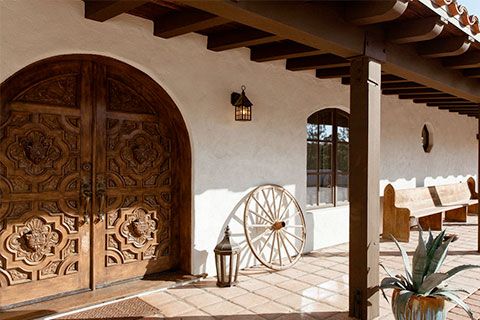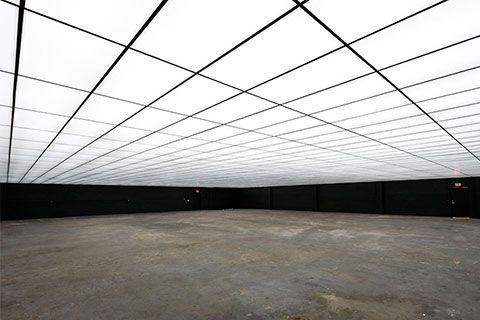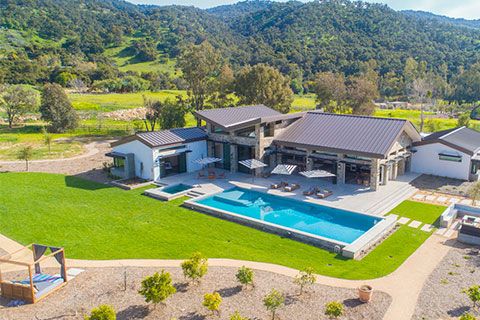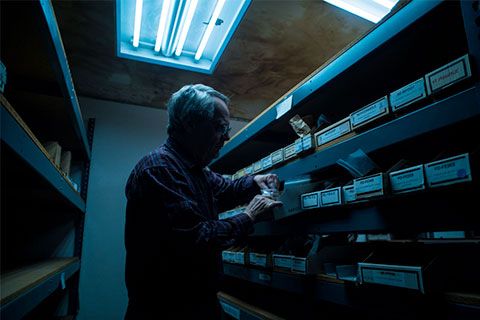9 Tips on Film Location Scouting From a Veteran Los Angeles Host
Scouting filming locations in Los Angeles can be a painful process involving rush hour traffic, street sweeping tickets, and the occasional awkward conversation – entering a stranger's home is always a bit weird.
Fortunately, there are several steps you can take to make scouting a breeze and give yourself the best possible chance of landing your preferred filming location. And in today's day and age, online catalogs of production location rentals in LA are easy to find
What Have I Learned from Hosting 100 Location Scouts?
During my last 3 years of working at Giggster, I've been a part of a team that has helped coordinate of tens of thousands of location scouts, and thousands of successful production bookings, from two-person photoshoots to massive Hollywood productions.
I'm also an experienced filming location host, and in this video below I go over 6 pro tips you need to follow while conducting a location scout
I've had over 50 shoots at my house in Venice, and have personally coordinated well over 100 separate scouts over the last 14 months. This experience has been invaluable in teaching me what works, what flops, and what to look out for.
You can scroll below to read all 9 scouting tips in detail, but the big takeaway of this article is pretty simple:
Before considerations of filming and logistics, the top priority of your initial film scout should be communicating to the property owner that you're trustworthy, professional, and low-risk.
A $1200 location budget may feel like a large sum of money that should afford you open access to the best properties in the city, however that's rarely the case.

The average homeowner in the United States has a net worth of $195,400, 36 times that of the average renter’s net worth of $5,400. In Los Angeles, where the median home value is nearly 5 times higher than the national median, this disparity is even more severe. This leads to an inevitably imbalanced negotiation, where you're likely going you be dealing with someone who is 100 or even 1000 times wealthier than you are.
While this reality is a bit depressing, fortunately there are steps you can take to maintain some leverage.
The initial on-site location scout, where a handful of producers/creatives get to scope out the property is one of the best opportunities to "pitch" your project and communicate to a location host why – in addition to some extra income for them – your project is worth their time.
Rent a location for your next film or photo shoot project on Giggster – A better way to book locations.






How to Win Your Filming Location Scout
1. Know the Value of the Location You're Visiting
The first thing you should do before you scout a filming location is figure out what the property you're visiting is worth. Understanding the value of the property will give you a better perspective on whether the listed price is a good deal, and if there is any room for negotiation. It can also give you insight into how to approach the host and communicate your value.

While $1000/day is a great budget in most of San Fernando Valley it's not going to mean nearly as much to an owner in West LA, for example. While you don't need to know specific home prices having a rough idea of the true value of your rental will make you a better filming location scout and a more informed negotiator.
2. Share All The Sticky Details Upfront
The biggest waste of time in the scouting process is waiting until the first on-site visit to share essential details about the production. I can't count the times I've had an inexperienced crew wait until they were on-site for a scout to mention they needed to shoot scenes late at night.
Don't be this kind of team.
I live in a residential neighborhood, and even for a budget of $3,000+ I'm not going to allow filming past 10pm. Even though this information is included in my location details page, I'm always happy to repeat it to a renter via text or Giggster chat.
When a renter chooses to bring up something like this on a scout, it's red flag that they either
- don't know what they're doing
- are being deceptive about the needs of their production.
As a renter, you should know the potential red flag issues of your production and discuss them with a host before the scout takes place. If you are not sure what these hot button topics might be, here's a quick list of the things hosts typically like to know before a scout is scheduled. Will the shoot...
- Last more than 10 Hours?
- Take place after 9pm at night?
- Involve nudity?
- Have stunts or fight scenes?
- Involve fake blood, glitter, liquids, broken glass or weapons?
- Involve fire or explosives?
- Involve children or pets?
- Have more than 10 people?
- Require complex exterior lighting rigs?
- Require street shots or cars?
- Be permitted and insured?
Before you reach out to hosts on Giggster to coordinate your scout, write out a long and detailed paragraph with all the logistical details and copy and paste that information to every location you want to scout.
Hosts will appreciate it, and even if you get shut down in a follow up message, at least you don't have to drive halfway across the city to be rejected in-person.

3. Arrive to Your Film Scout 15 Minutes Early
Arriving to a location scout on-time is an incredibly important part of communicating trust and professionalism. Generally speaking, you should aim to arrive at the location around 15 to 30 minutes before the scheduled time of the scout to allow you time to assess the curbside situation and the complexities of parking.
While you could wait until after the scout to take notes on the street parking, traffic noise, and neighborhood activities, if you do this before the scout, you'll be able to bring up your questions to the host and get direct advice in person. If you're scouting in the Hollywood, Malibu, DTLA or the Hollywood Hills, where parking is a nightmare, it's a good idea to ask the owner for advice on parking prior to arrival.
Many residential and commercial properties will have on-site parking, but don't take this for granted. Allowing a 15 minute buffer should allow you to park, take pictures of the street and curbside views of the property, and navigate through any confusing gates or security systems.
If finding parking for your scout was challenging, be sure to ask the property owners advice on where your crew can potentially park on the days of the shoot.
4. Introduce Your Team
The first thing you should do when you meet the location host (or the person hosting the scout) is to introduce yourself and your team. I've been the host for several larger scouts where there are over 6 people on the team, and I have no idea who I have been talking with on the Giggster chat, or who to direct questions to.
If you've been the one communicating with the host online, be the first person to on-site and the first one the host meets. You can catch them up on the project, introduce the rest of the crew on the scout, and if necessary hand-off the conversation to the team leader.
If you're combining the initial scout and tech scout into a single visit, and have a bunch of crew on site, be sure the introduce their roles. As an experienced host, I would prefer to direct questions about external lighting rigs and blocking of windows directly to the Director of Photography, and questions about generators and power needs to the Grip so it's helpful to know who that is.
After introducing yourself and your crew, re-introduce your project to the location host. Popular filming location hosts will have dozens of scouts every month, and they will always a appreciate a reminder of exactly which project you're scouting for.
5. Ask Permission Before You Do Anything
In the spirit of 'pitching your cautiousness' be extra deferential on arrival to the property, and ask about taking off your shoes, and permission to take pictures or videos. You should also ask for a quick tour of the property, which will allow the host to give you a supervised tour through the location and point out any off-limits areas and allow you to ask your high-priority questions while they're still top of mind.
As a host, if I see that the crew is being extra careful on their scout, it provides a good indication that they will be careful on the day of filming. Alternately, if a renter is largely oblivious to my concerns and feedback, tracking dirt into the house and mostly focused on blocking shots and other coordination prep-work prior to the actual booking date, it's a good indication that the production is going to be unorganized and unprofessional.
In addition to asking for permission, try to move slowly through the home. You definitely don't want to knock anything over or stain a carpet prior to the shoot even happening.

6. Keep Your Scout Under 20 Minutes
As a general courtesy, I would recommend trying to keep your scout as short as possible. A host pausing their life to let strangers into their home is always an inconvenience (especially if they're not being paid). For normal sized studios and family homes, 20 minutes should give you more than enough time to explore the property, take photos and videos and get a sense of everything you need. However, if it's a really large property or you've paid a scouting fee, then it's fair to take more time.
One of the reasons why knowing the value of the property (Tip #1) is important, is that it can provide a frame of reference on how much leverage your budget affords you. If I'm being approached by a big fashion brand willing to pay $3,000 for a 2 day shoot, I'm happy to let them take their time on their scout (I'll probably even make them a cup of coffee) because the potential payout is high. Conversely, if it's a $200 booking for only 2 hours, I'll be a bit annoyed when the scout goes beyond 30 minutes, as it is often because of the team starting to do prep-work on-site for free.
Shooting slow walkthrough videos in landscape mode on your phone is a great way of getting the most from your scout, and it will save you from having to discuss issues at the location. With detailed videos from every angle you can go back to the van or your office and have a in-depth discussion about the logistics of the shoot.
7. Ask Questions (and write down the answers)
While the priority of your initial scout should be impressing the property owner, you also need to collect a lot of crucial information for your team. If you're planning to record video during the entire walkthrough, you can use that as a recording tool. Otherwise, I'd recommend bringing along a clipboard, paper and a pen. Scouting, even everything going smoothly, can be a stressful experience and it's highly likely that you're going to forget an important piece of information.
If the host insists on putting down mats around all the entrances, write that down and underline it, because otherwise you could easily forget. A few veteran Giggster hosts have a print out of their house rules, which producers and crew can reference on the day of the shoot, but they usually do not. Use the scout as an opportunity to reiterate these rules and create a formalized list that everyone on the shoot can see.
Asking a lot of questions will also help put inexperienced hosts at ease, as it will show them that you know what you're doing and have considered every single angle and potential risk.
8. List the Ways You're Going to Protect the Property
If you've followed the previous seven tips and things are looking good, a great way to seal the deal and give yourself the absolute best chance of being able to book the property is to communicate to the host, all of the wonderful ways you are going to protect their property. If you have permits and production insurance(which you should) make sure to mention it.
Talk about how you're going to put tennis balls on the legs of all the heavy furniture, how you're going to keep all beverages outside in the craft-services area, where the flooring mats are going to be laid down, how you're going to buy gift baskets for all the neighbors, etc.
At the end of the scout, you should leave the host with the impression that you are the most cautious person they have ever met.
Listing these things may be unnecessary, but they definitely won't hurt - if you're production has lower budget, or involves a high-risk actively taking this extra step may be the deciding factor of whether a host agrees to let you shoot in their home.

9. Don't Communicate Your Final Decision on the Scout
This is not a critical rule, but it's generally a good piece of advice to maintain leverage in your negotiations (thus getting the best price possible) and not burn any bridges. As a host, I almost always know if a scout goes well enough to generate a booking, and as a renter you don't need to tell me.
In fact, it's in your best interest to keep a poker face, and leave the property thanking the host but clearly communicating that you're also considering a few other locations. If the host likes the project (enough to schedule a scout) and also seems to like you based on your initial scout, it's highly probable that you can get them to nudge their budget, or make some concessions regarding wrap and prep times, or having a few extra crew on-site.
During your scout you can also ask the owners about how often they book shoots, and their short-term booking schedule. If they seem swamped with projects, and you love the property, you might want to skip the negotiation and follow up directly with a booking request.
Conclusion
Like most aspects of production, the film scouting process can be stressful and unpredictable, especially if you're going through the process for the first time. While hiring a professional location scout is a great option if you can afford it, if you're planning on finding and scouting a location yourself, this list of insider tips should provide a solid starting point for communicating your professionalism.
As mentioned in the introduction, the most important part of the initial scout is making sure the location is willing to rent to you (and maybe even give you a discounted rate). You may have graduated from a top film school, or be working with a prestigious client, but don't take anything for granted.
From a homeowners perspective, giving an indie producer the keys to their house is roughly the equivalent of lending a Ferrari to a high-schooler. While anything's possible for the right price, ensuring that the price is something you can actually afford is going to require the communication of trust, experience, and good faith that you're going to treat their property like it was your own.
This article is a part of a larger series on location scouting. If you're interested in getting the full scoop of all of our tips and advice on that topic, check out our ultimate guide to location scouting.
That's about all the pro tips, guidelines, and checklist you need to keep in mind while scouting for a location. The first step though, is finding a location to scout. Here in LA, Giggster has an extensive catalog of production spaces perfect for filming and photoshoots. We also have an incredibly powerful search tool that allows you to search for exactly what you've in mind, no matter how specific or vague that might be. That said, best of luck on your location scout and your production project!

